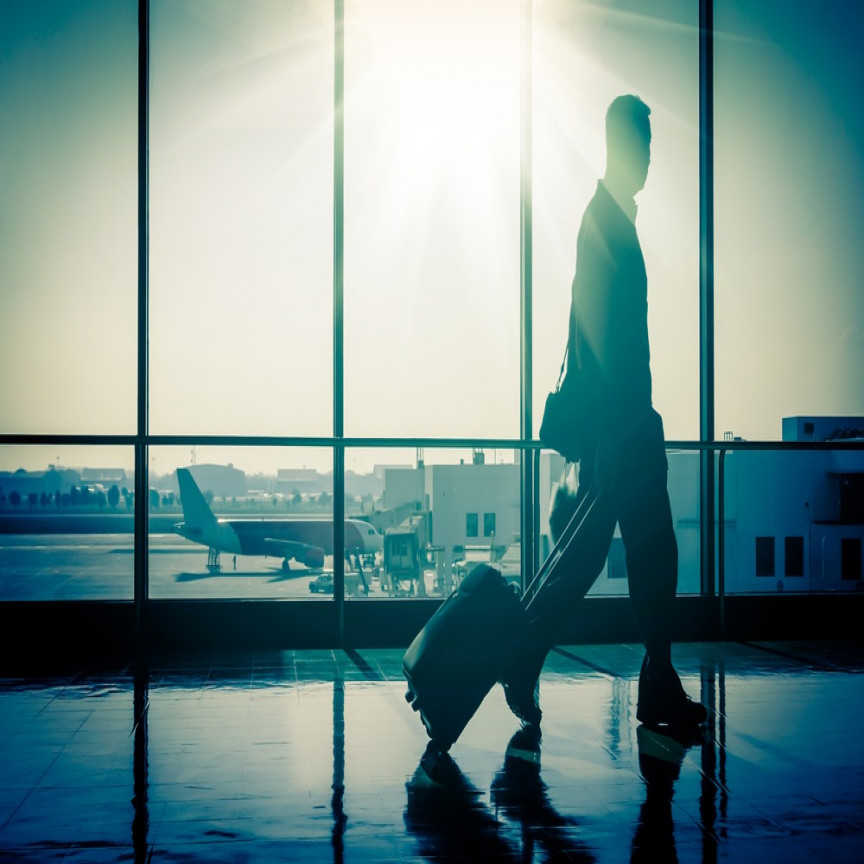The coronavirus pandemic has given a crippling jolt to the travel industry. As the panic continues regarding the extent and duration of the infectious disease, the tourism industry worldwide has taken a setback from hotels turning into quarantines to airlines halting flights across regions.
The entire chain across travel agents, hotels, tour operations and cruise operators have been hit. There has been an increasing reluctance amongst people to travel abroad due to the fear of getting stuck as the governments are announcing widespread travel restrictions.
Amid the massive lockdowns and travel bans, the global travel industry is running out of money.
UNWTO has taken SARS outbreak of 2003 as a benchmark to estimate the impact of COVID-19 on world tourism. UNWTO, as 27 March 2020, has estimated that international arrival of tourists globally could fall in the range 1%-3%, down from earlier estimated growth of about 3%-4% in January 2020 resulting in losses worth US$30-50 billion in the expenditure by international visitors.
Cancellation of events and trips, layoffs and fall in revenue have become some of the typical traits of companies all around the world due to the COVID-19 pandemic.
The International Air Transport Association (IATA) has projected that major airlines will wipe off US$61 billion of their cash reserves by the end of Q2 of 2020. The agency has predicted net losses of US$39 billion in Q2. If the severe travel restrictions continued for three months, an analysis based on the impact assessment shows that the full-year demand will fall by 38% resulting in US$252 billion in overall annual revenue of 2020 for the global aviation industry.
Tourism hits domestic economy
Australia had already lost billions in bushfires last year; the country is now struggling to keep its tourism industry stay afloat as more and more visitors cancel their holidays due to coronavirus outbreak.
"The tourism industry might have to bear losses worth A$3 billion per month across Australia due to travel restrictions", stated by CEO of Tourism and Travel Forum.
Below are the two major airlines that have suspended staff, grounded fleet and are reeling under financial pressure due to the COVID-19 impact.
VIRGIN AUSTRALIA HOLDINGS LIMITED (ASX:VAH)
The stock price of the group fell from a high of A$0.14 on 10 February 2020 to A$0.055 on 20 March 2020 amidst the virus spread. The stock last traded at A$0.090 on 01 April 2020, down 5.263%.
As per a trading update of 31 March 2020, the airlines had asked for financial support from the government of Australia worth $1.4 billion as a part of the broader industry support package to get ready for COVID-19 crisis. The bailout package is dependent on approval by Virgin Australia Holdings Board and the government of Australia and may or may not involve conversion to equity in some situations.
Credit Suisse estimates "By June, Virgin could burn $900 million cash balance and would require further liquidity to make through the COVID-19 crisis".
The group is taking a variety of measures to counter and control the economic impact arising from the virus outbreak. The support will be a prerequisite if the crisis persists in safeguarding jobs and ensuring robust and competitive aviation after the crisis.
QANTAS AIRWAYS LIMITED (ASX:QAN)
The stock price of the group fell from a high of A$6.5 on 21 February 2020 to A$2.14 on 19 March 2020 amidst the virus spread. The stock last traded at $3.380 on 01 April 2020, up 4.644%.
On 25 March 2020, the airlines raised about $1 billion in debt funding against the aircrafts it owns to tackle liquidity crunch arising from coronavirus outbreak. The group also has $3.5 billion in unencumbered assets retaining the flexibility to increase its cash balance.
Virgin Australia and Qantas bailout Battle
Qantas and Virgin Australia have stood down 20,000 and 8,000 workers till date. They have also slashed their domestic routes and grounded their international fleet due to the virus outbreak.
Qantas Airlines, after the request by Virgin Australia for a bailout package, asserted that if Virgin Australia gets $1.4 billion, then Qantas should receive S4.2 billion as its revenue is three times bigger than Virgin's. Qantas CEO stated that the federal government must "level the playing field" and extend support proportional to the size of the business.
Government’s stance on the bailout request
The government does not seem interested in Virgin's bailout request as it will significantly increase the amount of bailout package. Finance Minister Mathias Cormann stated that the government has no intention to take a stake in an airline. Still, it was committed to ensuring Australia had two competing airlines for travellers.
The Federal Government has already announced a waiver on the fees and charges for the domestic airlines worth A$715 million. The relief package included refund and waive aviation fuel excise, domestic and regional aviation security charges and air service charges. The government also announced additional support of A$300 million for the regional airlines and communities to help them deal with the virus impact.
Rating agencies downgrade Virgin's credit rating
The global credit rating agency, S&P has reduced Virgin Australia's credit rating from 'B-'to 'CCC' after the airlines decided to cut 90% of its domestic capacity and suspend subsidiary Tigerair.
Fitch Group also downgraded its view for the airline's group with B- rating but remained positive on the airline's flexibility to manage liquidity pressures.
Outlook for the Aviation industry
"Airlines require more working capital to maintain their businesses in such times of extreme volatility. Colombia, Canada and the Netherlands are providing a major lift to the sector by letting their airlines to extend vouchers as a substitute of cash refunds. This will help the sector in providing cargo shipments and give long-term connectivity between travellers and economies in the recovery phase", stated Alexandre de Juniac, IATA's Director-General.
Airlines around the world are increasingly asking for government bailouts as they have been suffering since the COVID-19 outbreak. With millions of jobs being lost daily around the world, governments need to move fast to support the industry from the knock-on-effect of the plunge in bookings.






